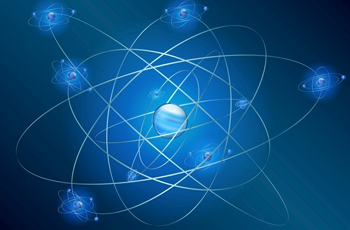Majors(by List)

- Main CampusKorea Atomic Energy Research Institute
- Participating Campus
- Number of Students 26
- Number of Faculty34
Introduce
This major deals with general topics related to the nuclear science and engineering. It consists of 3 sub-majors in Radiochemistry, Quantum energy chemical engineering and Nuclear system engineering. Radiochemistry provides various radiochemistry educations regarding radiochemical analysis, nuclear research, and radiochemical reaction. Quantum energy chemical engineering provides training courses for nuclear fuel cycle technology such as dry processing of spent nuclear fuel, radioactive waste treatment and disposal technology, nuclear material technology, and nuclear decommissioning technology. Nuclear system engineering deals with the research related to the system design, validation, and safety evaluation. This sub-major includes variety of research fields related with nuclear system such as reactor thermal-hydraulic experiment/analysis, severe accident, probabilistic safety assessment, and neutron beam research.
Specialization
Radiochemistry major is the field of observing the physicochemical properties and chemical reactions of radioactive materials to provide cutting edge technologies and data that are essential to the nuclear industry and research. As the only major in radiochemistry in Korea, we provide various radiochemistry educations regarding radiochemical analysis, nuclear research, and radiochemical reaction using experts, special facilities, and equipment in the Korea Atomic Energy Research Institute.
The sub-major in quantum energy chemical engineering aims to develop new technologies related to chemical systems and materials at the atomic and molecular level in the field of nuclear, chemical engineering, chemistry, material science, and environmental engineering and science, and a new field in which they converge. This interdisciplinary goal provides the source technology to advance Korea's nuclear and general chemical industry technologies to become the world's first movers. The technology created through this advances many key areas related to the front and back end nuclear fuel cycles, and the spin-off technologies will provide the basis for the general industrial field to have sustainable competitiveness even in the 4th industrial era. To this end, we provide training courses in the fields of nuclear fuel cycle technology such as dry treatment of spent nuclear fuel, radioactive waste treatment and disposal technology, nuclear material technology, and nuclear decommissioning technology that can dramatically improve the safety and economics of nuclear power.
The sub-major in nuclear system engineering deals with the research related to the system design, validation, and safety evaluation. This sub-major includes variety of research fields related with nuclear system such as reactor thermal-hydraulic experiment/analysis, severe accident, probabilistic safety assessment, and neutron beam research. Thermal-hydraulic experiment and analysis contribute to resolving the safety issues and enhancing the nuclear safety by evaluating the performance of safety systems and validating the safety analysis codes. In case of a severe accident in NPP, uncertain phenomena such as corium behavior, hydrogen combustion, and radiological releases are investigated. Probabilistic safety assessment quantify the safety of NPP with probabilistic way, and contribute to improving the safety of NPP by deriving the vulnerabilities of NPP. Neutron beam science and technologies is a research field for the studies of phenomena and analyses of materials and/or processes using neutron beam produced by atomic energy systems such as research reactors. It includes neutron physics, scattering, diffraction, imaging, and instruments, which can be applied for physics, chemistry, mechanics, and materials science.